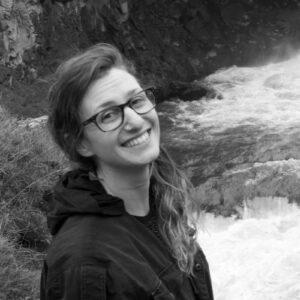
Communications Associate
Ricardo Salvador addresses the audience.
On October 5, we are honored to host Ricardo Salvador, senior scientist at the Union of Concerned Scientists, as our keynote speaker at Light up the Redd, our annual benefit and celebration of people, place, and food.
At the New England Farm to Institution Summit in Massachusetts last April, keynote speaker Ricardo Salvador didn’t mince words.
“The nation’s food system still bears the imprint of its origins as a system for exploiting people and nature,” Salvador said during the conference’s opening plenary. “Addressing the root causes of hunger and diet-related chronic disease will require confronting society’s need for greater justice.”
Salvador — Director of the Food and Environment Program for the Union of Concerned Scientists — challenged the term “broken food system,” a phrase commonly used by food systems professionals to describe the status quo. While the system is certainly untenable, Salvador suggests that it functions precisely as it was designed — by concentrating wealth and power in the hands of an elite few, while externalizing human and environmental costs.
For more than 200 years, slavery in the U.S. agricultural system out-competed wage labor, generating substantial wealth that funded geographical expansion and industrial growth. Today, rather than wealthy plantation owners, the food system’s “elite few” are corporations, but the exploited populations remain the same: primarily Latino Americans, Native Americans, and African Americans. In concert with continued labor and wage disparities in the food system, these communities experience higher incidences of poverty, food insecurity, obesity, and diet-related diseases.
As part of our organization-wide equity plan, our Food and Farms team is looking at how racism in the food system affects our work, recognizing that if we simply work within the system without addressing its historical underpinnings, change will not be possible.
Food and Farms Director Stacey Sobell attended the summit and found Salvador’s speech informative and impactful.
“It was an important reminder that the food system as we know it today was built on exploitation — from land dispossession and slavery to cheap immigrant labor,” Sobell said. “The only way we can have a better food system for people and planet is by recognizing and confronting the injustice that has been foundational in its development.”
Sobell said Salvador’s keynote speech laid bare the food system’s historical legacy of racism, which set up systemic and structural inequalities that persist today. Things like dispossessing Native Americans of land through conquest and colonization, thereby ending their food production methods, their ability to provide for themselves, and their unique connections to particular geographies, are aspects of the food system’s history that aren’t necessarily visible; however, the consequences continue to be felt by dispossessed communities and are repeatedly reenacted by a food system that has largely retained its function and structure over time.
“
Addressing the root causes of hunger and diet-related chronic disease will require confronting society’s need for greater justice.
—RICARDO SALVADOR
Salvador’s work revolves around equity in the food system, which he strives to understand from both scientific and social perspectives. In a blog post for the Union of Concerned Scientists he writes, “It was too late by the time I realized that social inequity was the root cause of the issues I wanted to fight, and I finished my studies in a very technical area. But I was highly motivated by the social factor.”
Salvador’s heritage and background is German-American on his mother’s side and Zapotec (indigenous Mexican) on his father’s. His Zapotec uncle Prisciliano spent a working lifetime as a farm laborer in the United States, and passed away last year. In the same blog post, Salvador writes that his uncle “is one of the many reasons I’m consumed with my work to improve the food system so that none of us have to rely on the exploitation of others to eat each day.”
We are honored to host Ricardo Salvador this October as keynote speaker for Light Up the Redd. Join us for this inspiring night of both celebration and education as we work to build an equitable regional food system.

Title
“As the senior scientist and director of the Food and Environment Program at the Union of Concerned Scientists, Ricardo Salvador has over four decades of experience working with citizens, scientists, economists, and politicians to transition our current food system into one that grows healthy foods while employing sustainable and socially equitable practices.”